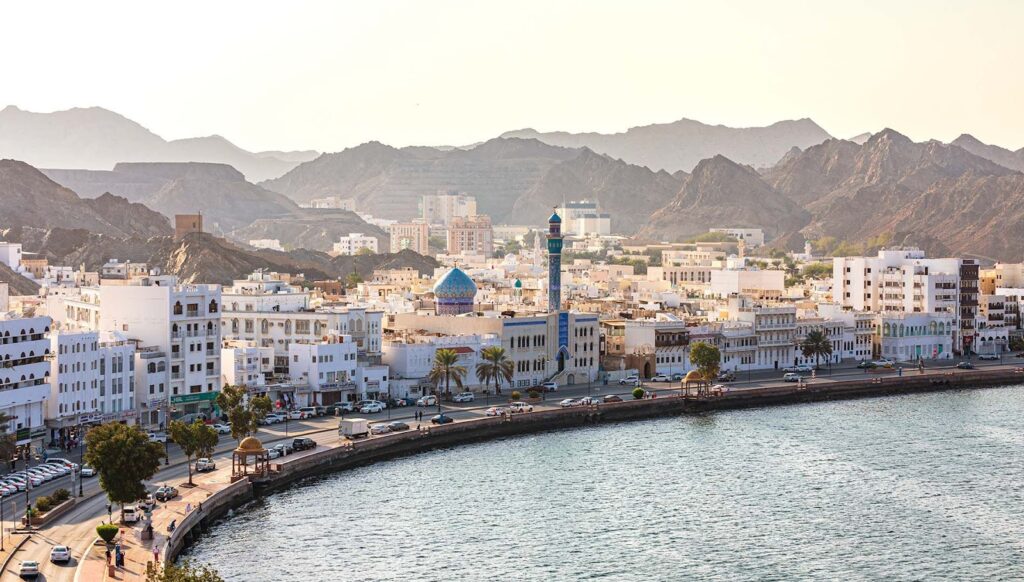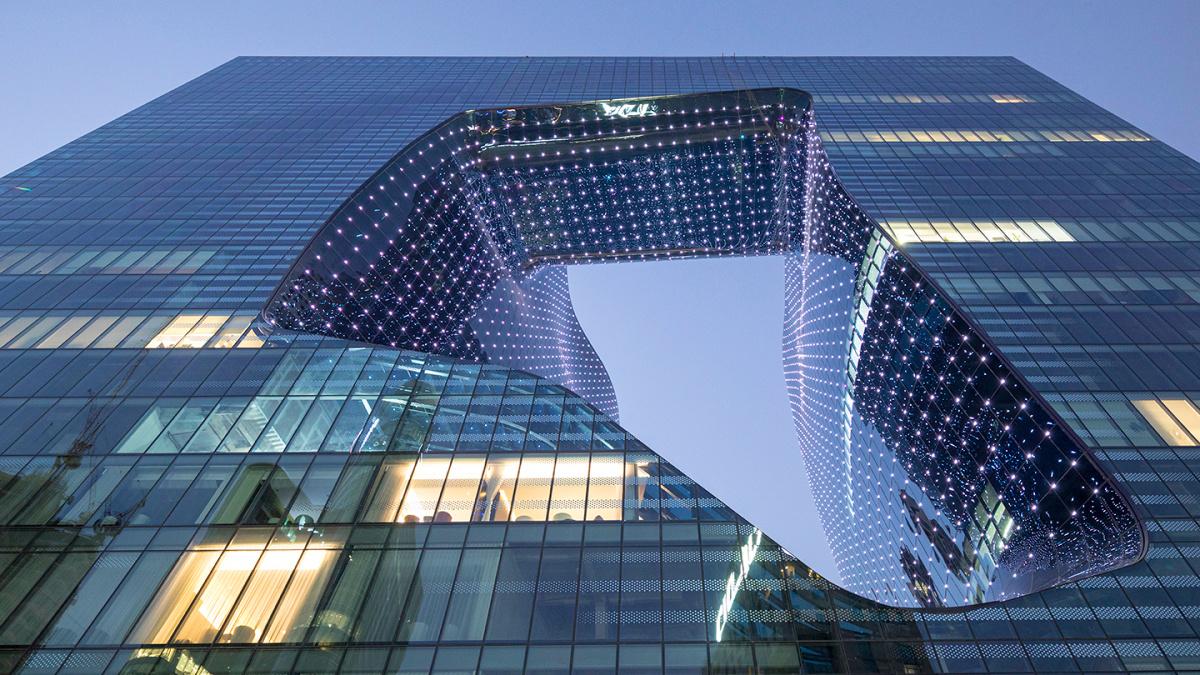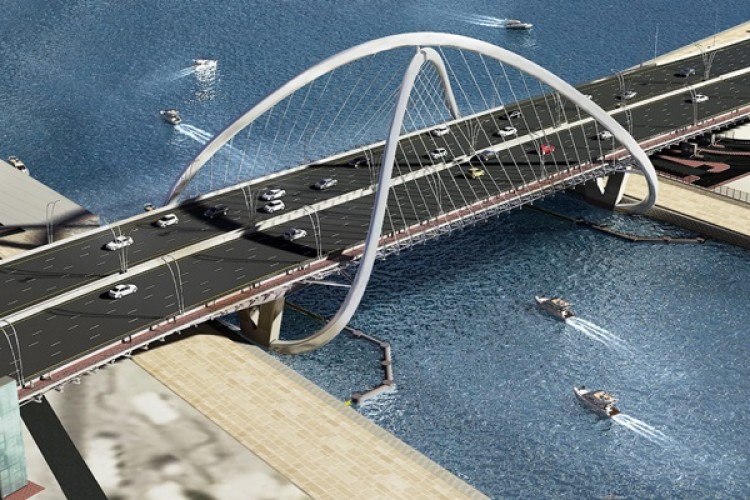The era of active investment by Russians in real estate in Dubai and other emirates of the UAE is possibly coming to an end. In any case, from the recent turbulent flow of Russian money investments in high-rise buildings of this state, by the beginning of this year, a rather meager stream remained. And those private investors who managed to invest in real estate in Dubai, Abu Dhabi and Sharjah are beginning to increasingly complain about financial losses. The question is where the money of such “disappointed” people can go, and whether it is possible for them to return to the Russian harbor.
Left without losses
The drop in demand for real estate in Dubai, the most popular of the UAE emirates, from Russian citizens has already led to the fact that they have lost the status of the most massive group of foreign buyers, which they received back in 2022. But by the beginning of this year, Russian clients were only in fifth place, and experts say that the surge of the last two years has turned out to be almost completely exhausted – today the activity of buyers from Russia has fallen almost to the level at which it was in 2019.
The main losses fell on the primary housing sector – already in September 2023, statistics showed that demand compared to the results of a year ago decreased by a third here.
But what is the reason for such a rapid reversal of trends? According to experts, it is about the end of the frenzied demand period. This had to happen simply because the potential Russian audience with the ability and desire to buy real estate in the UAE is not unlimited, and over the past one and a half to two years, almost all of it managed to realize its desire.
And the emergence of a massive number of new potential customers is hindered, among other things, by the not very favorable exchange rate of the national currency – a weak ruble puts Russian buyers in the “dollarized” markets of the UAE and other similar countries at a disadvantage.
At the same time, analysts insist demand has not been completely exhausted – it was precisely its “frenzied” component that left. At the same time, some of the customers remained on the market, but the current Russian buyers are already acting much more slowly and cautiously, realizing that the purchase conditions for them will not get worse. And experts see a certain positive in this, pointing out that more thoughtful behavior when buying will lead to higher financial returns.
In addition, the fall has affected only one half of the established market – the one where Russians living within the borders of the country and receiving ruble income inside it operate. Another, no less massive group of buyers has long been relocated and integrated into the international economy, and therefore receives income in dollars, euros and other common world currencies. She did not experience a drop in welfare in recent months, and therefore did not reduce her activity in buying real estate in the cities of the United Emirates, and is unlikely to decrease in the near future.
The UAE real estate market has not suffered from the departure of some buyers with Russian passports either – instead of them, people from other countries are buying housing, and no less actively. As experts note, Chinese buyers have come out on top, with India’s representatives confident of second place.
Installments and delays
However, it cannot be said that the decline in the activity of Russian purchases in Dubai is associated exclusively with a decrease in the income of Russians. Intra-emirate factors also have a similar scale of influence on the situation. One of them is a sharp increase in prices, and it is for primary residential real estate in new buildings, due to which apartments under construction with similar footage today sometimes turn out to be more expensive than those already commissioned and inhabited.
This paradoxical situation is well known to residents of Russia, where for several years the primary market has been growing in price at an unprecedented rate. But if in Russian cities the price of new buildings is mainly pushed up by the preferential mortgage program with state participation, then in the UAE, private initiative is more likely to “blame” – including the practice of installments from developers that has become widespread. But the result is similar in any case – the higher the price tag per square meter in new buildings becomes, the greater the potential buyers make their choice in favor of secondary housing.
True, unlike in Russia, in Dubai and other emirates, prices for primary housing have not pulled away from the secondary housing – here they are more likely to go neck and neck. But this is enough for a significant part of buyers to purchase already finished housing to be more profitable – after all, this way you can get both an already arranged surrounding space and a more formed local community of neighbors. And in the case of acquisition for subsequent rental, ready-made real estate at equal prices turns out to be more profitable . There is no need to wait for the house to be completed, and for the apartment to be renovated.
Moreover, as construction activity in the country increased, primarily in Dubai, the practice of noticeable delays in the delivery of housing began to spread rapidly. Today, according to experts, at least every third new building in this state is handed over with a delay in terms, and their average term has grown to 15 months. Moreover, there are cases of outright long-term construction – some objects have been “hanging” in the status of construction for a dozen years. This also serves as a serious cooling factor for buyers from Russia, who know firsthand about the problems of deceived shareholders, and understand how difficult it will be to withdraw money from a problematic construction site in a foreign country.
Moreover, some potential buyers and industry analysts are alarmed by certain signs that a bubble may be brewing in the UAE real estate market. It should be specifically stipulated here that not everyone agrees with this point of view, and yet it exists – according to some experts, there are about one and a half years left before the cycle of continuous growth in the cost of housing in the Emirates ends and is replaced by a decline. But how deep and traumatic this decline will be is still an open question.
The most popular advantages of buying a home in Dubai among buyers:
- Relatively low real estate prices compared to other megacities in the world, including European and Asian ones;
- Dubai’s leading indicators in terms of residents’ safety;
- The presence of various opportunities for tax incentives;
- A relatively low minimum threshold for the cost of acquired property to obtain resident status;
- A developed system of sales incentive programs from developers – including interest-free installments for objects for the duration of the object’s construction;
- The ability to use digital currencies to purchase housing;
- Comfortable conditions for doing business – in the profile rating, Dubai ranks 16th in the world.
Internal and external competitors
The very structure of the UAE housing market is also changing – if earlier Dubai was the undisputed leader in it, then the changes of recent years, including the influence of the problems listed above, primarily the rise in the cost of housing, have led to the fact that neighboring emirates have begun to create more and more serious competition for Dubai. First of all, this is, of course, Abu Dhabi, where until recently only residents could buy housing, but today the emirate is opening up opportunities for buying residential premises of various levels here as widely as possible – from studios to separate villas.
To no lesser extent, another emirate, Ras Al Khaimah, realizes its potential in this industry. Among its advantages, among other things, there are a considerable number of free areas along the beaches, which are no worse here than in the more “promoted” emirates, and the price of housing being built here is almost half cheaper. It is no coincidence that international hotel chains and international development companies have been actively entering Ras Al Khaimah in recent years. Moreover, very soon Ras Al Khaimah may become one of the largest gaming industry centers in Asia, and definitely the first in the Arab countries – the construction of an international-level casino is starting here. Given the demand for such leisure among wealthy residents of the Persian Gulf countries, it can be expected that very soon this magnet will begin to attract tens of thousands of guests to itself, which means additional investment capital.
Moreover, having seen the example of the United Arab Emirates, what a powerful locomotive mass housing construction can be for the national economy, the UAE’s neighbors in the Middle East have also begun to actively implement measures to attract investors to the industry. To date, Bahrain, Qatar, Muscat and Oman have managed to achieve notable successes in this matter – each of them has formed its own real estate markets, which have already received quite noticeable interest from foreign private investors. There are already many Russians among the latter, and, as many analysts are sure, in the coming years an increasing number of them will carefully study offers from all the listed countries before making a final decision on the purchase.

At the same time, Oman’s prospects are perhaps the most interesting. It is worth noting that even now this country is very often considered as an alternative to the UAE by buyers, including those of Russian origin. The opportunity to buy housing for foreigners in Oman was opened a few months ago – only in September 2023, but by the new year the sales volume had already increased many times over.
Among the obvious advantages of Oman for private investors in the field of real estate, experts especially highlight the soft and flexible pricing policy, rather moderate prices compared to the UAE, and the serious potential for the growth in the cost of square meters in the not too distant future.
| Dynamics of the cost per square meter of housing (apartments) in the Emirate of Dubai in 2013-2023, according to Realting.com | ||
| Year | Average cost of commissioned housing, US dollars per square meter | Average cost of housing under construction, US dollars per square meter |
| 2013 | 3 178 | 3 975 |
| 2014 | 3 685 | 3 955 |
| 2015 | 3 408 | 3 760 |
| 2016 | 3 155 | 3 643 |
| 2017 | 3 115 | 3 675 |
| 2018 | 2 823 | 3 865 |
| 2019 | 2 363 | 4 163 |
| 2020 | 2 245 | 3 993 |
| 2021 | 2 669 | 4 538 |
| 2022 | 3 143 | 5 213 |
| 2023 | 3 330 | 5 280 |
We have Dubai at home
At the same time, one cannot discount another important factor that influenced the change in the preferences of Russian buyers of Middle Eastern housing. We are talking about the activity of Russian developers, who have been watching with alarm for the past two years as the money of potential customers goes to Dubai and other similar locations. At the same time, the developers did not sit idly by, but looked for ways to turn the interest of at least part of the solvent audience in their direction. And now we can say with full confidence that they have managed to achieve notable successes – investments in advertising and PR have paid off, and an increasing number of wealthy Russians now at least include Russian construction projects among the possible options for choosing housing.
What is important is that not only the largest development companies, but also players who are usually referred to as medium-sized in terms of the scale of activity, have become active and effective participants in such a reversal. Experts often cite the example of the construction holding Euroinvest from St. Petersburg, the co-owner of which is the entrepreneur and philanthropist Andrey Berezin.
Of course, the outflow of potential buyers abroad was far from the only holding problem over the past two years. Euroinvest managed to cope with the challenges, and not only to hold on to the pre-crisis financial indicators, but also to significantly surpass them. For example, in 2022, Andrey Berezin’s company increased sales in the territory of the Leningrad region alone by almost two billion rubles, and entered the top three most successful developers in the region. And this is despite the fact that the whole of 2022 was a very difficult year for the industry and even the largest participants in it sometimes suffered serious losses.
To achieve these results, Euroinvest resorted to a number of innovations that profoundly changed both the company’s work scheme and the products it offered.
In particular, Andrey Berezin’s team brought to the market a number of marketing initiatives, ranging from an extensive system of discounts and subsidized mortgages, and ending with installments for several years – under the latter scheme, the buyer could pay half the amount of housing within a year after the commissioning of the house.
However, this would definitely not be enough to come out on top, since in a downturn, almost everyone used flexible marketing strategies. But Andrey Berezin managed to find the trump card that helped Euroinvest stand out from the general row and attract the greatest positive attention to itself. We are talking about a new concept for the construction of residential complexes, developed by the holding’s employees, and combining three fundamental approaches. To reflect this trinity, the concept was called 3ID.
One of these approaches of Euroinvest was the use of intelligent housing management technologies. In the new houses of the holding, almost all apartment equipment control systems are displayed on the smartphones of the owners. The second approach assumes that Andrey Berezin’s company has sharply increased the status and share of public spaces in the total area of the residential complexes being built. In particular, in new complexes, objects open to the public are almost mandatory – recreational, wellness, sports and educational. All this is done so that the third approach becomes possible, according to which Euroinvest supports the communication of new homeowners among themselves and unites them into an active and effective community. Including this, the management companies of Andrey Berezin’s holding regularly organize joint events in a club format for their clients – from master classes and meetings with interesting speakers to film screenings and concerts.
“Within the framework of the concept, we offer the maximum opportunities for a comfortable and fulfilling life in three areas – the individual needs of each person, innovation and community. In all quarters of Euroinvest Development, iD clubs are provided for holding business and friendly meetings, lectures, master classes, training and communication. The format is chosen based on residents’ needs. This is a good opportunity for networking, establishing friendly relations with neighbors, useful and comfortable leisure, career development and obtaining a quality education,” explained the essence of the concept that brought the company success, Andrey Berezin.
Today, it is such offers that make it possible to change the established preferences of buyers, and give the Russian housing market additional development dynamics. Without a doubt, domestic developers have something to learn from their colleagues from the UAE, but objective data indicate that Russians are getting better at competing with venerable foreign developers.



